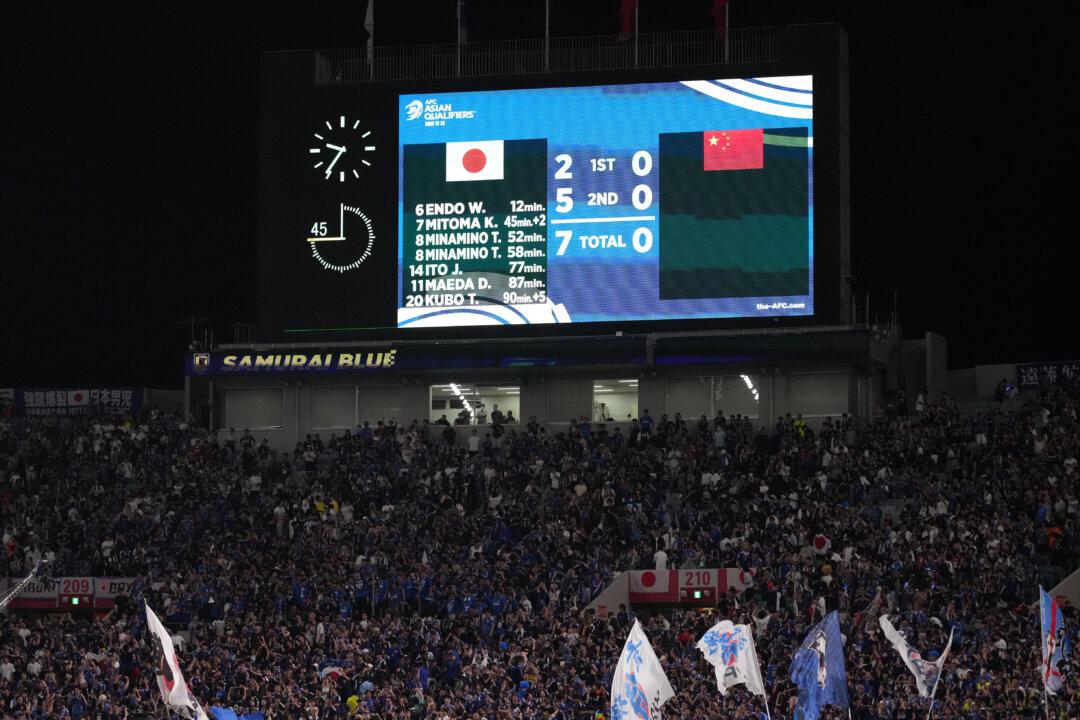Analysis
As exemplified by the recent 0-7 loss to Japan, despite receiving big money and strong support from the communist regime, the Chinese national soccer team’s performance has been abysmal.

As exemplified by the recent 0-7 loss to Japan, despite receiving big money and strong support from the communist regime, the Chinese national soccer team’s performance has been abysmal.